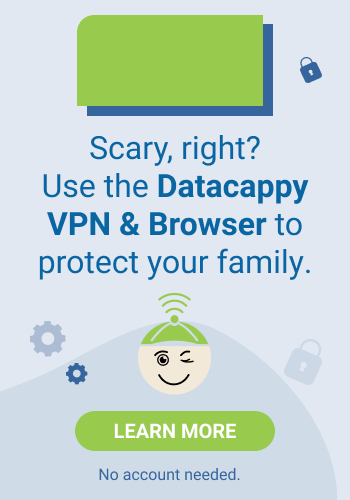If you don’t like the notion of faceless companies gathering information about you and your children for the benefit of their advertising strategies, you can opt out of their tracking efforts. Your data is yours. It isn’t always easy to do, but if digital privacy concerns you, opting out is an important step.
As a recent report from the Washington Post put it, “data brokers are building profiles about you, using thousands of pieces of information such as your age, income, race, ethnicity and interests and helping marketers use this data to send you targeted ads.” By opting out, your children can avoid feeding more information to advertisers.
Step-by-Step Solutions
Busy parents who want to quickly get up to speed on solutions for opting out can rely on simpleoptout.com. This site is dedicated to drawing attention to marketing practices such as data sharing and provides clear, step-by-step instructions to opt out of ads from a wide range of sites. Browse or search for links to specific organizations and use the details to connect with them to opt out of their ads.
Another resource is StopDataMining.me, which touts its mission as being a “central source for consumers to learn what kinds of information data brokers have about them and how to exercise their opt-out choices.”
Unsubscribe…Carefully
Unsubscribing from emails pitching this product or that service is a smart move, but there’s often more to it than clicking the “unsubscribe” link. The NJ Cybersecurity & Communications Integration Cell report “Unsubscribe Confirmation Request Scams” advised parents to “avoid clicking on links and opening attachments within unsolicited or unexpected emails, even those appearing to be from known senders. Users are advised to, instead, navigate to websites by manually typing the URL into the address bar of their browser.”
Remember that your children’s digital privacy is at stake. When kids browse the internet unsupervised, they are “opting in” to advertising without even realizing it. As a parent you’ll want to make sure that you protect them from all the marketers who want to target and sell to them without their or your knowledge.
Of course, one of the most important things that you can do to protect your children when they go online is to make sure that they do it in your presence, under strict supervision. Parental oversight is the foundation of your kids’ online security.
Confining usage of computers to a common area such as the living room or family room is a good step in the right direction. If you allow your children to use a smartphone or tablet (yours or their own) to access online data, don’t let them use it by themselves, such as in their bedroom.
While kids are adept at bypassing parental rules and may find ways to go online without you knowing about it, such as by using a friend’s computer, you can minimize potential harm by instructing them in how and why they should protect themselves and opt out of advertising tracking.







